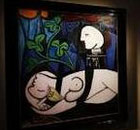Global General
Iran accepts Brazil mediation to revive atom deal
(Agencies)
Updated: 2010-05-06 00:46
 |
Large Medium Small |
TEHRAN - Iranian President Mahmoud Ahmadinejad has agreed "in principle" to Brazilian mediation to revive a UN-brokered nuclear fuel swap deal with world powers, the semi-official Fars news agency said on Wednesday.
The powers see the deal as a way to remove much of Iran's low-enriched uranium stockpile to minimize the risk of this being used for atomic bombs, while Iran would get specially processed fuel to keep its nuclear medicine program running.
But the proposal broke down over Iran's insistence on doing the swap only on its territory, rather than shipping its LEU abroad in advance, and in smaller, phased amounts, meaning no meaningful cut in a stockpile which grows day by day.
"In a telephone conversation with his Venezuelan counterpart, Ahmadinejad agreed in principle to Brazil's mediation over the nuclear fuel deal," Fars said, quoting a statement issued by Ahmadinejad's office.
Brazilian Foreign Minister Celso Amorim last week said during a visit to Tehran that Brazil wanted to see a revival of the fuel swap agreement to end Iran's standoff with the West.
The South American nation has said UN sanctions against Iran over its nuclear program could make the Islamic Republic more radical, but has also warned Ahmadinejad he will suffer the consequences if he seeks nuclear arms.
The pact conceived in talks conducted by the UN nuclear watchdog last October required Iran to ship 1,200 kg (2,646 lb) of its LEU, enough for one atom bomb if enriched to high grade, to Russia and France for conversion into fuel for the Tehran Research Reactor, which makes isotopes for cancer treatment.
The United States, France and Russia have ruled out rewriting the deal's conditions as Iran demands.
Push For UN Sanction
The United States is lobbying UN Security Council members, to back a fourth round of international sanctions on Iran in the coming weeks, to press it into curbing uranium enrichment.
Brazil says it favors reviving a mooted compromise in which Iran could export its uranium to another country in return for nuclear fuel Iran says it needs to keep the Tehran reactor running.
It was not clear whether Ahmadinejad had agreed for the fuel swap to take place in a third country. If so, it would be a major shift in Iran's stance.
Iran started enrichment to 20 percent fissile purity in February, up from 5 percent, to create fuel for the research reactor itself, bringing Iran closer to levels needed for producing weapons-grade material -- uranium refined to 90 percent purity.
In a speech to a nuclear Non-Proliferation Treaty (NPT) review conference at the United Nations, US Secretary of State Hillary Clinton said Monday that Iran's nuclear ambitions put the world at risk and called on nations to rally around US efforts to finally hold the Islamic Republic to account.
The five permanent members of the UN Security Council -- the United States, Britain, France, Russia and China -- along with Germany are in talks over a broader sanctions resolution against Iran.










